Picture
Your Present Location: HOME> PictureRUC holds the Third Annual Conference on Finance
On November 9th, the Third Annual Conference on Finance of Renmin University of China (2019) was held in Beijing with the theme of "Financial Opening-up and Great Change: Path Selection".
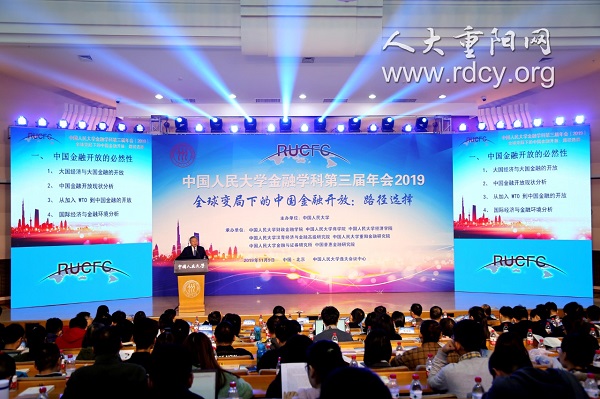
The conference was hosted by Renmin University of China (RUC), and was jointly organized by the School of Finance, School of Business, School of Economics, Hanqing Advanced Institute of Economics and Finance, Chongyang Institute for Financial Studies (RDCY), Institute of Finance and Securities, and Chinese Academy of Financial Inclusion. The conference attracted nearly 400 participants including the faculty and students from School of Finance of RUC and other universities, experts and scholars from social financial research institutions, and media representatives.
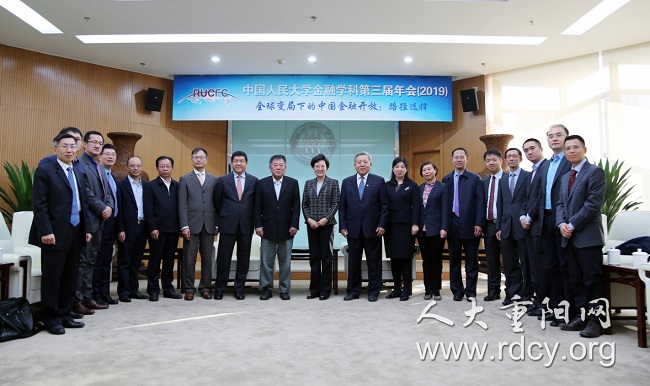
Jin Nuo, chair of RUC University Council, delivered a speech at the opening ceremony. Wu Xiaoqiu, the vice president of RUC, and Xie Ping professor of Wudaokou Finance College of Tsinghua University, Yu Yongding, member of the Chinese Academy of Social Sciences, and Huang Haizhou, managing director of CICC gave keynote speeches.The opening ceremony was presided over by Zhuang Yumin, dean of the School of Finance and the executive director and dean of RDCY.
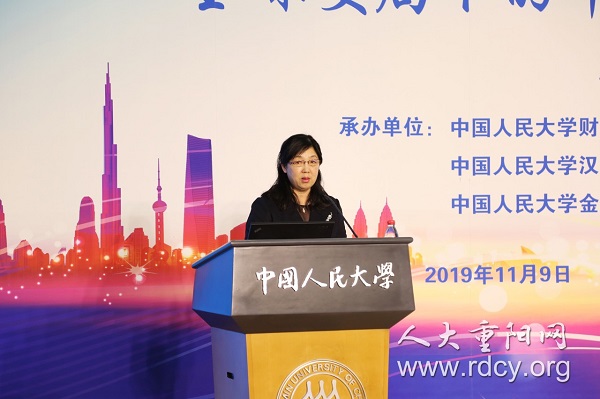
Jin Nou said that Finance was one of the eight major disciplines established by Renmin University in the past. There is an urgent need for the development of financial studies and financial talents in China with the new era. Under the circumstance, it is RUC's responsibilities to participate in the construction of financial discipline which includes the construction of first-class disciplines, the construction of first-class think tanks, and the cultivation of first-class talents. Therefore, in the construction of "Double-top Class", RUC is dedicated to solving major practical problems in development and cultivating top talents which all are the bases of building Chinese characteristics theoretical system.
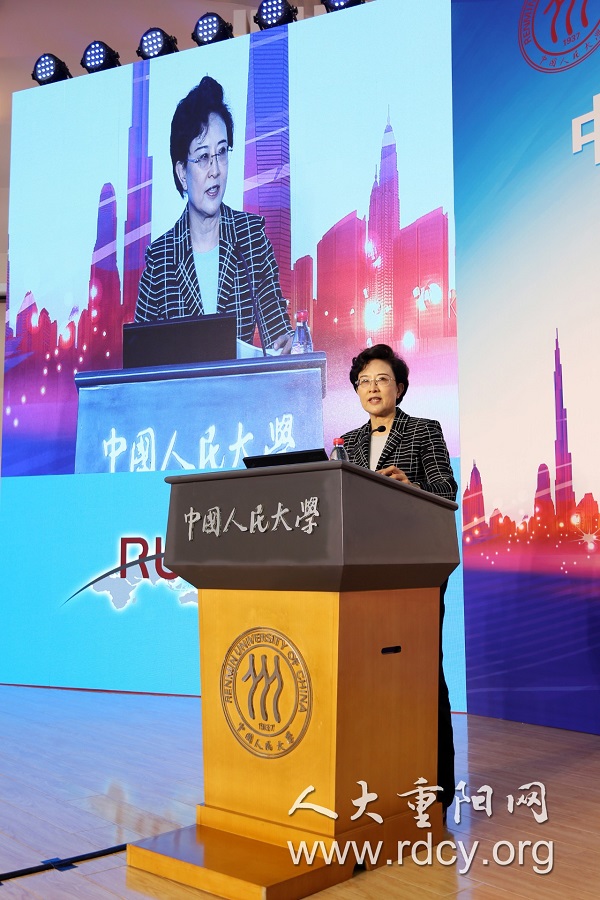
Wu Xiaoqi delivered a keynote speech entitled "China's Financial Opening: Analysis of Goals, Paths and Possibilities". He said that China's entry into WTO means that the Chinese economy is fully integrated into the international market and the international economic system and hints that the new round of openness steps in a higher level. There are three goals of financial opening which separately are to build a new global financial center in the 21st century, to promote liberalization and internationalization of the Renminbi, and to build global capital allocation and trading center dominated by Renminbi.
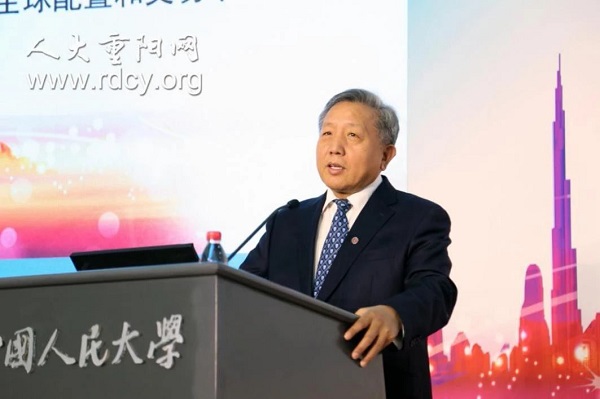
Xie Ping mainly illustrated Libra and Central Bank Digital Currency(CBDC). He said that Libra issued by Facebook as Stablecoin is a super-sovereign currency which is a challenge for the construction of the financial discipline.But CBDC is a sovereign one. Meanwhile, Xie Ping reminded us that it is necessary to establish the discipline of digital currency and train professionals to study the challenges and influence of digital currency from monetary policy, the capital market, to financial supervision theory.
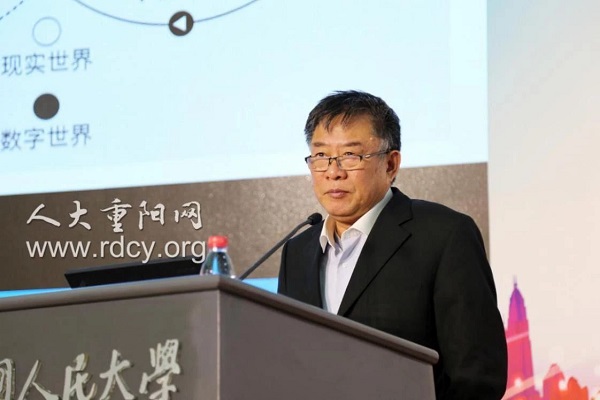
Yu Yongding talked about "International Financial Environment and Financial Opening"from three aspects, the negative interest rate policy of developed countries, the opening up of financial services and the capital control and the structural distortion of China's overseas investment position.
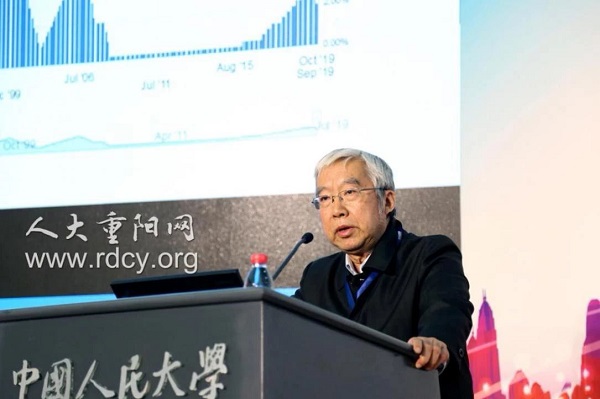
Huang Haizhou delivered a speech entitled "The Third Anchorage of the Global Monetary System: From the Gold Standard to the Sovereign Currency and the Digital Currency" to discuss the basic theoretical issues of the financial discipline.
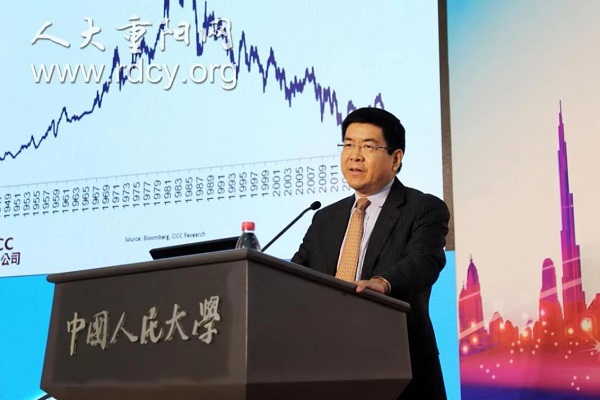
Ji Zhihong, Vice president of China Construction Bank, delivered a keynote speech at the luncheon, with the theme "Financial Support for New Economic Development".
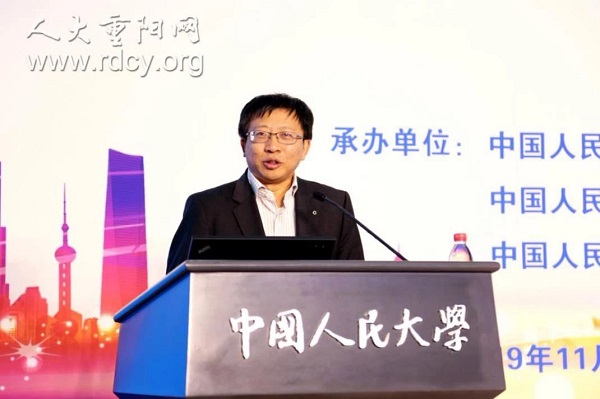
Zhao Xijun, the deputy dean of the School of Finance, presided over the luncheon session.
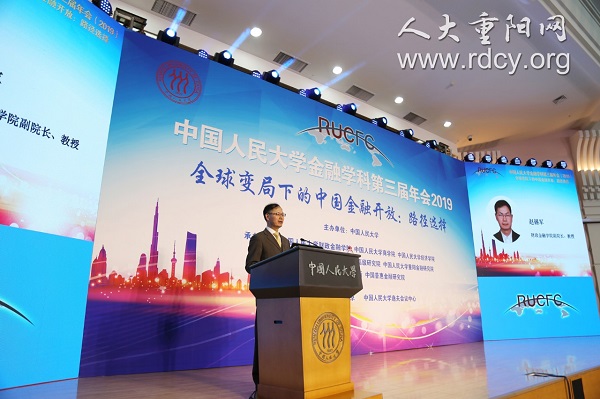
In the afternoon, there are two parallel forums and released ten academic reports both in Chinese and English, such as"Coping with Two Exchange Rates of a Single Currency: The Chinese experience of unconventional monetary policy", "Bank liquidity creation, network contagion and systemic risk: Evidence from Chinese listed banks", "The effect of mandatory CSR disclosure on trade credit", "Macroeconomic Risk, Expected Market Return, and the Cross-Section of Stock Returns: A Data-mining Perspective", and "What Do A Billion Observations Say About Distance and Relationship Lending?"
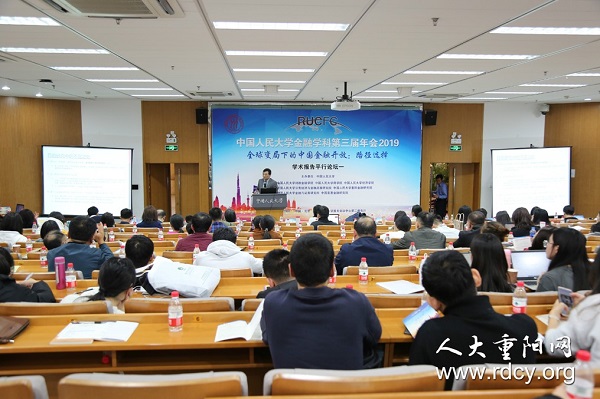























































































 京公网安备 11010802037854号
京公网安备 11010802037854号





